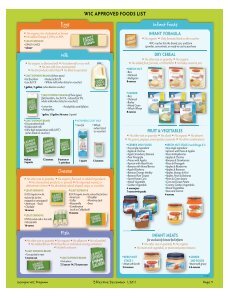

WIC participants who move can continue to receive WIC benefits until their certification period expires as long as there is proof the individual received WIC benefits in a previous locality or state. An eligible individual usually receives WIC benefits from 6 months to a year, at which time she/he must reapply. Therefore, a participant will "graduate" at the end of one or more certification periods. However, this information can be obtained from another health professional such as the applicant's physician. This often can be done in the WIC clinic at no cost to the applicant. "Nutrition risk" means an individual has a medical-based condition such as anemia or a poor pregnancy outcome or dietary-based conditions such as poor eating habits. Certain applicants can be determined income-eligible for WIC based on their participation in programs such as SNAP, Medicaid, TANF, formerly known as AFDC (Aid to Families with Dependent Children).Īpplicants must be seen by a health professional such as a physician, nurse, or nutritionist who must determine whether the individual is at nutrition risk. To be eligible for WIC, applicants must have income at or below the standard set by the Georgia WIC program which must be between 100% but not more than 185% of the Federal poverty income guidelines. This means our applicants must be residents of Georgia and live in Fulton County. It is a preliminary assessment – only Fulton County WIC staff can determine if you qualify for WIC services in Fulton County.Īpplicants must live in the state and local jurisdiction in which they apply for the WIC Nutrition Program.

The Online Intake Form can assist you in determining your eligibility for the WIC Nutrition Program. At your appointment, WIC staff will check to see if you and your family qualify. You can take the WIC Eligibility Assessment to see if you qualify or contact your local WIC office to make an appointment and find out which documents you will need to bring with you.


 0 kommentar(er)
0 kommentar(er)
